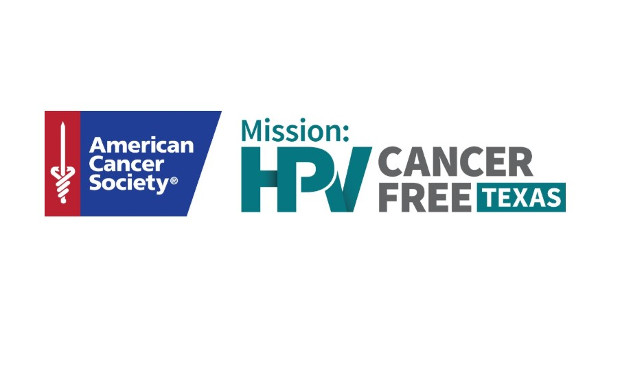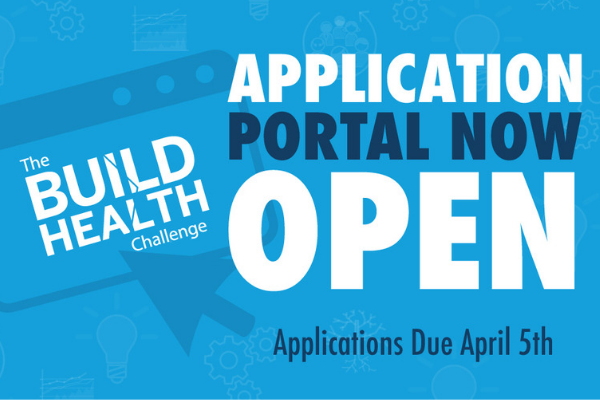Treating physical and mental health together improves chronic conditions
San Antonio, TX (Dec. 12, 2019)– A new U.S. – Mexico border study shows that providing physical and mental health care together improves conditions like diabetes and depression in South Texas.
The study focused on improving wellness for low-income, uninsured Hispanic residents who face multiple barriers to accessing health care and are also more likely to have chronic health conditions, like diabetes. And almost 40 percent of Hispanic patients with Type 2 diabetes also have depression, making it even more critical to get the right mix of physical and mental health care.
That care is hard to find: Most counties in the Rio Grande Valley are federally designated as Medically Underserved Areas and Health Professional Shortage Areas. For every 100,000 residents, there are only 15.5 family physicians.
A five-year project called Sí Texas: Social Innovation for a Healthy South Texas, studied the effectiveness of integrating physical and mental health care in a single visit, which enables providers to more effectively coordinate care so that neither physical nor mental health care needs are neglected.
This approach, called Integrated Behavioral Health (IBH), is taking hold in many areas of the country, but until this project, had never been studied in low-income, uninsured, predominantly Hispanic populations.
Connecting communities to care
Sí Texas was developed by San Antonio-based Methodist Healthcare Ministries of South Texas, Inc. The health care non-profit has focused its services in South Texas for nearly 25 years. Communities near the border and along the coastal bend offered the ideal population and health care access conditions for the study, but an added challenge in that South Texas is often ignored when it comes to grant funding and philanthropy; organizations that might provide individual grants in the region aren’t large enough to fund a project of this scope, and 7 of the 12 counties in the project have no foundations that fund health initiatives.
“We know that physical, mental and spiritual health together are the key to wellness, but for many low-income South Texas residents, realities like lack of transportation, and other social or economic factors get in the way of access to health care, says Jaime Wesolowski, president and CEO of Methodist Healthcare Ministries of South Texas, Inc. “Border communities and people living in rural areas are especially impacted. We work to improve health equity in the region, and we want the partners we work with to have the resources to be community health leaders in their own right. Sí Texas was an opportunity to deliver more effective care and to support sustainable operational growth for providers and clinics in South Texas.”
Methodist Healthcare Ministries created a partnership between a federal agency that provides funding for community initiatives, and regional and local funders – together, the resources added up to $60 million to study the effectiveness of IBH in counties where income and access to health care are among the lowest in the nation and conditions like diabetes and depression are among the highest.
8 clinics, 12 counties in the study
The major funding came from the Corporation for National and Community Service (CNCS), Methodist Healthcare Ministries and Harlingen-based Valley Baptist Legacy Foundation; several smaller, regional co-investors also contributed. Eight health care organizations in 12 counties were selected to implement IBH programs, study the effectiveness of the approach with patients who had diagnoses for conditions like diabetes, depression, high blood pressure, anxiety and obesity, and evaluate the results and the impact.
“Sí Texas addressed real barriers in South Texas, where working, poor residents face so many obstacles to accessing health care; there’s a tremendous need to find better ways to treat these common chronic conditions,” says Jennifer Knoulton, RN, Methodist Healthcare Ministries’ vice president of regional operations. “We’ve been working in South Texas communities for years and we’re familiar with the unique needs of low-income, uninsured people living in this region. Transforming the type of care people have access to can change lives over generations. This project was important to us from a care delivery standpoint, but also because we believe that the best health care treats the body, mind and spirit. Sí Texas was a way for us to introduce IBH and expand whole-person health care in South Texas.”
The eight clinics selected for the project were a diverse group of local mental health authorities, federally qualified health clinics, primary care charity clinics and academic institutions operating clinics in the communities targeted for the project. Each clinic designed its own IBH program for the unique needs of the people it cares for. Altogether, the project spanned 12 counties, chosen for their federal status on poverty rates, health outcomes and access to providers. During the study, Sí Texas provided IBH health care for 51,937 low-income, uninsured patients and clients.
IBH works in South Texas
The results confirm that IBH is effective in treating chronic health and mental health conditions in low-income, uninsured, predominantly Hispanic populations. The success of the study in South Texas has powerful implications for successful health care delivery outcomes in parts of the country facing similar conditions.
Depression and HbA1c (a key diabetes marker) improved for patients who received IBH care across the project, compared to a control group which received regular standard of care services. Also, the effect of Si Texas’ IBH care was stronger among participants with diabetes, depression, or a diagnosis of Severe and Persistent Mental Illness, and among females 49+ years of age.
“What we learned validates that integrating mental, physical and spiritual healthcare improves whole-person wellness,” added Wesolowski of Methodist Healthcare Ministries. “We are grateful for the courage and perseverance of the patients, providers and organizations who braved this journey.”
For more information and resources, or to read the full Sí Texas Social Innovation for a Health South Texas report, visit mhm.org/sitexas/.
Si Texas facts
- Almost 40 percent of Hispanic patients with Type 2 diabetes also have depression.[i]
- In the Sí Texas project area, residents are at a higher rate of getting cancer, diabetes and heart disease than those who live in urban areas, according to the Texas Department of Health and Human Services.
- The Rio Grande Valley has a critical health care provider shortage; there are only 15.5 family physicians per 100,000 people.[ii]
- Sí Texas was a $60 million health care delivery redesign project, with a unique matching fund structure through the Corporation for National and Community Service, Methodist Healthcare Ministries of South Texas, Inc., Valley Baptist Legacy Foundation and other smaller community co-funders.
- Sí Texas marked the first time the Corporation for National and Community Service – a federal agency – provided funds to a faith-based organization like Methodist Healthcare Ministries of South Texas, Inc.
- The eight participating clinics: Hope Family Health Center; Nuestra Clinica del Valle; Texas A&M International University; Tropical Texas Behavioral Health; University of Texas School of Public Health – Brownsville; University of Texas Rio Grande Valley; REAL, Inc.; Mercy Ministries of Laredo.
- In communities near the U.S. – Mexico border, a health care delivery project of this scale – with an integrated behavioral health approach – had never been studied before.
- The results show that IBH is effective in treating chronic health and mental health conditions in low-income, uninsured, predominantly Hispanic populations, with implications for successful outcomes in similar conditions.
###
About Methodist Healthcare Ministries of South Texas, Inc.
Methodist Healthcare Ministries of South Texas, Inc. is a private, faith-based not-for-profit organization dedicated to creating access to health care for the uninsured through direct services, community partnerships and strategic grant-making in 74 counties across South Texas. Guided by its mission of "Serving Humanity to Honor God," Methodist Healthcare Ministries’ vision is to be the leader for improving wellness of the least served. The mission also includes Methodist Healthcare Ministries' one-half ownership of the Methodist Healthcare System, the largest healthcare system in South Texas, which creates a unique avenue to ensure that it continues to be a benefit to the community by providing quality care to all and charitable care when needed. For more information, visit www.mhm.org.
[i]Mier, Nelda, et al. “Health-related quality of life among Mexican Americans living in colonias at the Texas–Mexico border” Social Science & Medicine Volume 8, Issue 66 (2008): Page 1760 – 1771.
https://www.sciencedirect.com/science/article/abs/pii/S027795360700665X



 Maybe it all started with a love of Legos? Or maybe it was Lincoln Logs? Or creating an indoor tent and pillow fort with every clean sheet and pillowcase I could find in my house (sorry Mom!)? In short, the inclination to build things starts in childhood. As adults, we start building in other ways. Beyond construction, we develop systemic plans, and we see opportunities to build and work with intention to expand or increase something – make something bolder. Building something bolder–a perfect way to describe Methodist Healthcare Ministries’ new venture with
Maybe it all started with a love of Legos? Or maybe it was Lincoln Logs? Or creating an indoor tent and pillow fort with every clean sheet and pillowcase I could find in my house (sorry Mom!)? In short, the inclination to build things starts in childhood. As adults, we start building in other ways. Beyond construction, we develop systemic plans, and we see opportunities to build and work with intention to expand or increase something – make something bolder. Building something bolder–a perfect way to describe Methodist Healthcare Ministries’ new venture with 


 San Antonio, Texas, August 12, 2019– – Methodist Healthcare Ministries of South Texas, Inc. announced a second round of funding for the
San Antonio, Texas, August 12, 2019– – Methodist Healthcare Ministries of South Texas, Inc. announced a second round of funding for the 






